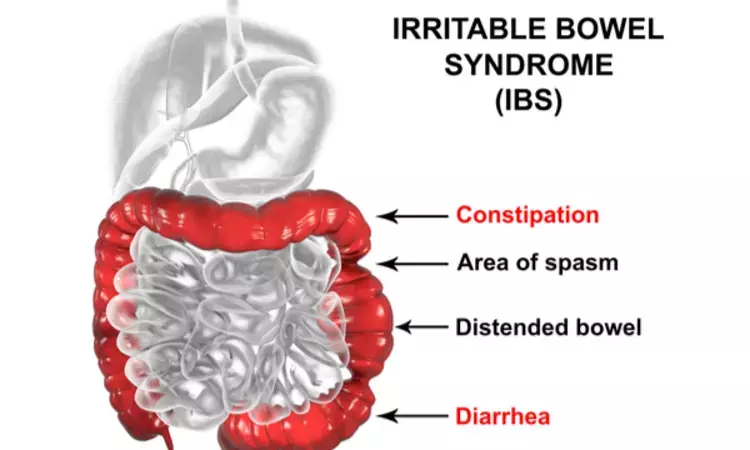- Home
- Medical news & Guidelines
- Anesthesiology
- Cardiology and CTVS
- Critical Care
- Dentistry
- Dermatology
- Diabetes and Endocrinology
- ENT
- Gastroenterology
- Medicine
- Nephrology
- Neurology
- Obstretics-Gynaecology
- Oncology
- Ophthalmology
- Orthopaedics
- Pediatrics-Neonatology
- Psychiatry
- Pulmonology
- Radiology
- Surgery
- Urology
- Laboratory Medicine
- Diet
- Nursing
- Paramedical
- Physiotherapy
- Health news
- Fact Check
- Bone Health Fact Check
- Brain Health Fact Check
- Cancer Related Fact Check
- Child Care Fact Check
- Dental and oral health fact check
- Diabetes and metabolic health fact check
- Diet and Nutrition Fact Check
- Eye and ENT Care Fact Check
- Fitness fact check
- Gut health fact check
- Heart health fact check
- Kidney health fact check
- Medical education fact check
- Men's health fact check
- Respiratory fact check
- Skin and hair care fact check
- Vaccine and Immunization fact check
- Women's health fact check
- AYUSH
- State News
- Andaman and Nicobar Islands
- Andhra Pradesh
- Arunachal Pradesh
- Assam
- Bihar
- Chandigarh
- Chattisgarh
- Dadra and Nagar Haveli
- Daman and Diu
- Delhi
- Goa
- Gujarat
- Haryana
- Himachal Pradesh
- Jammu & Kashmir
- Jharkhand
- Karnataka
- Kerala
- Ladakh
- Lakshadweep
- Madhya Pradesh
- Maharashtra
- Manipur
- Meghalaya
- Mizoram
- Nagaland
- Odisha
- Puducherry
- Punjab
- Rajasthan
- Sikkim
- Tamil Nadu
- Telangana
- Tripura
- Uttar Pradesh
- Uttrakhand
- West Bengal
- Medical Education
- Industry
IBS Patients Face Higher Risk of Developing IBD, suggests study

Researchers have discovered in a new study that irritable bowel syndrome (IBS) patients have a much greater long-term risk of acquiring inflammatory bowel disease (IBD) than the general population. The study concluded that IBS patients, particularly those with the diarrhea-predominant subtype (IBS-D), had a higher risk of developing ulcerative colitis (UC) or Crohn's disease (CD) in the long run. The study was published in the Journal of Gastroenterology by Huixin S. and colleagues.
IBS and IBD are two prevalent but different gastrointestinal disorders. IBS is defined as a functional disorder in which there is abdominal pain, bloating, diarrhea, or constipation, whereas IBD, encompassing UC and CD, is a chronic inflammatory bowel disease of the gastrointestinal tract with ongoing complications. This UK Biobank large-scale study gives the strongest evidence to date that IBS patients are at a significantly increased risk of developing IBD.
The study team examined 447,631 baseline participants without IBD (2006–2010) for longitudinal cohort analysis and 76,992 participants who filled out the Digestive Health Questionnaire (2017–2018) for cross-sectional analysis. The main outcome in the cohort study was incident new cases of IBD, with Cox proportional hazards models calculating hazard ratios (HRs). In the cross-sectional design, prevalent IBD was taken as the outcome, and logistic regression calculated odds ratios (ORs).
Results
• During a median follow-up of 14.2 years, the cohort study ascertained 2,916 new cases of IBD, including 2,097 ulcerative colitis (UC) and 1,015 Crohn's disease (CD) cases.
In comparison with non-IBS participants, IBS patients exhibited:
• 68% increased risk of IBD (HR = 1.68, 95% CI: 1.47–1.92).
• 60% increased risk of UC (HR = 1.60, 95% CI: 1.36–1.89).
• 104% increased risk of CD (HR = 2.04, 95% CI: 1.66–2.51).
• Notably, the risk continued to persist in the long term, with IBS patients continuing to have a 55% increased risk of IBD at 10 years (HR = 1.55, 95% CI: 1.27–1.89).
In cross-sectional analysis, IBS patients had markedly increased odds of IBD:
• 2.40-fold increased odds of overall IBD (OR = 2.40, 95% CI: 2.14–2.70).
• 2.18-fold increased odds of UC (OR = 2.18, 95% CI: 1.92–2.48).
• 3.15-fold increased odds of CD (OR = 3.15, 95% CI: 2.68–3.70).
• Among the IBS subtypes, the IBS-D group had the highest odds with a 3.72 times higher risk of IBD (OR = 3.72, 95% CI: 3.24–4.28).
This large population study in UK Biobank produces strong evidence that IBS patients, particularly IBS-D, have a significantly higher risk of developing IBD, including UC and CD, compared to the general population. This elevated risk is maintained for more than a decade, supporting the requirement for long-term watchfulness among IBS patients. These findings suggest that IBS might not only be thought of as a functional disorder but also as an occult risk factor for the future development of inflammatory bowel diseases.
Reference:
Song, H., Zhou, Y., Liu, S. et al. Long-term risk of inflammatory bowel disease in patients with irritable bowel syndrome: the cross-sectional and longitudinal relationship. J Gastroenterol (2025). https://doi.org/10.1007/s00535-025-02304-1
Dr Riya Dave has completed dentistry from Gujarat University in 2022. She is a dentist and accomplished medical and scientific writer known for her commitment to bridging the gap between clinical expertise and accessible healthcare information. She has been actively involved in writing blogs related to health and wellness.
Dr Kamal Kant Kohli-MBBS, DTCD- a chest specialist with more than 30 years of practice and a flair for writing clinical articles, Dr Kamal Kant Kohli joined Medical Dialogues as a Chief Editor of Medical News. Besides writing articles, as an editor, he proofreads and verifies all the medical content published on Medical Dialogues including those coming from journals, studies,medical conferences,guidelines etc. Email: drkohli@medicaldialogues.in. Contact no. 011-43720751


